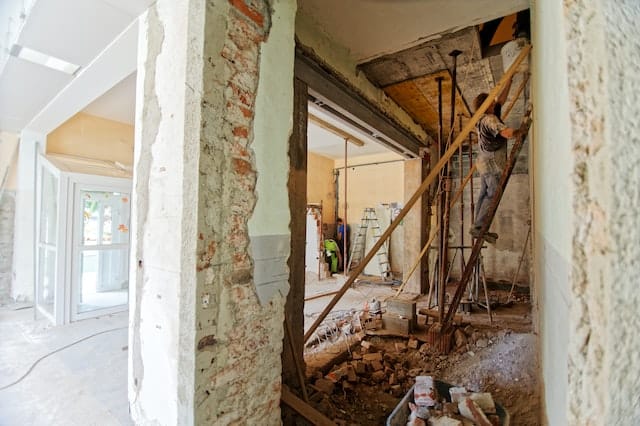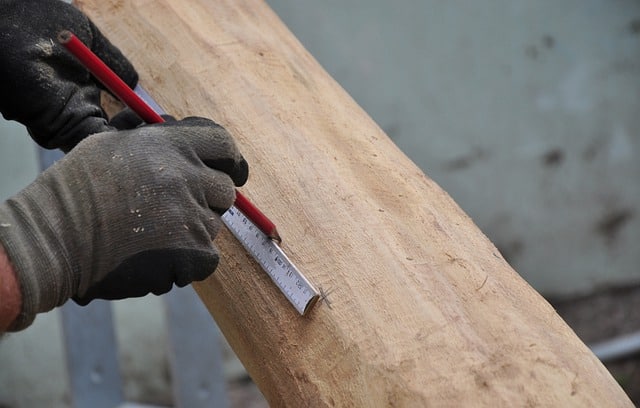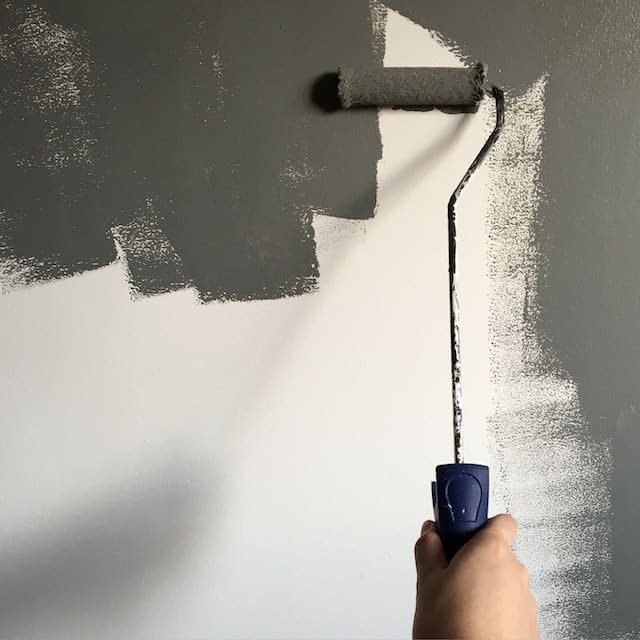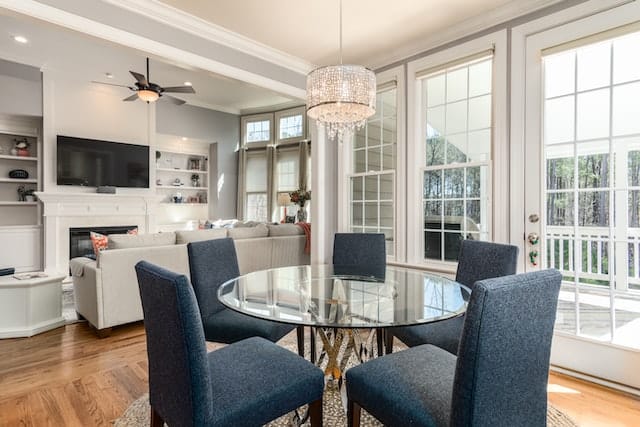Remodeling your home can be a fun way to improve your home’s look, functionality, and livability. With the milder fall weather starting, it’s a perfect time for Dallas homeowners to consider starting remodeling projects.
Whether you are planning something as simple as sprucing up a room with a fresh coat of paint, or a more extensive remodel, here’s some helpful the best decisions along the way so you can have the most efficient and pain-free remodeling experience.
1. Don’t DIY Everything
Sure, there are simple home improvement projects you can do yourself, but know your limits. For example, if you aren’t handy with a skillsaw, don’t attempt to cut new crown molding or build a new deck just because you saw a YouTube video.
Some projects are best left to a professional contractor. So, paint away, to your heart’s content, but when it comes to plumbing, electrical, kitchen and bathroom remodels, additions, and other big projects, it’s wise to hire a renovation expert.
2. Don’t Skimp on Materials

Credit: cottonbro on Pexels
You know the saying, “You get what you pay for.” Well, this certainly is true when it comes to building materials. That doesn’t mean you should blow your entire budget on that super high-end flooring you have been dreaming about. But do invest in high quality materials, even for the things you can’t see.
Choosing the cheapest product for the job can actually end up costing you money if you have to replace or repair it in a short period of time. Invest in quality for things you touch every day, from floors to doors, hardware, faucets, appliances, and cabinets. They’ll hold up well and you won’t regret it.
3. Don’t Ignore Permit Requirements
If you are planning a DIY renovation, make sure you check with your county or city building department to see if your project requires a permit. If you think you can save money or avoid delays by skipping getting a permit, think again.
If you avoid getting your permit, you risk your renovation getting delayed or even torn down. Also, if you try to sell your home, the lack of a permit for any additions or renovations requiring one could cause you serious problems.
Another benefit to using a professional licensed contractor is that they will know the permitting process and apply for them before starting any renovations so you have the smoothest experience possible.
4. Don’t Focus on Aesthetics First
Your gorgeous new flooring isn’t going to look nice for long if it starts buckling due to issues with the subfloor. While structural issues may not be “sexy” they are integral to the health and safety of your home.
Make sure you address any needed repairs to pipes, plumbing, electrical, and foundations before renovating spaces. That will save you time and money later and you’ll avoid having to rip out that newly tiled shower wall to address mold.
5. Don’t Wait Too Long To Consult A Professional

Credit: Photo by Milivoj Kuhar on Unsplash
Don’t risk starting a renovation project prematurely and then get stuck staring into the abyss of bare plywood and pipes 2 weeks later wondering what you got yourself into.
If you start a project yourself before considering the reality of the work and time it will take, it’s likely going to cost you more money in the long run, and you might not find someone available to come and put your bathroom back together again quickly.
The best time to call a remodeling expert is before you do something you can’t fix.So, don’t wait until you have destroyed your bathroom, kitchen, or house to make that call to a professional remodeling expert.
6. Compare Several Bids & Don’t Always Go With the Lowest
Do compare several bids and consider other factors.
Remember the saying, “You get what you pay for.” Good work isn’t always cheap, and cheap work isn’t always good. That doesn’t mean you have to break the bank to remodel your home.
Do your homework and research your options. Then, interview your top two or three contractors and request bids. You might find your renovations are actually more affordable than you think. Be wary of any bids that are deep discounts compared to the other choices.
7. Don’t Serve As Your Own General Contractor
Sure, you could hire an electrician and plumber separately and do other renovations yourself. But there is no guarantee that they are going to fit into your schedule seamlessly.
A licensed general contractor has experience with timelines and can plan seamlessly when each subcontractor will be needed, which needs to be a top priority in renovations. Contractors often have relationships with subcontractors or have employees who specialize in certain areas. General contractors also offer accountability.
8. Don’t Underestimate How Much Time It Will Take
Even with the best planning, you might discover that you underestimated costs and the amount of time your renovations will take. To avoid being unpleasantly surprised, do your research, and get several quotes on materials and remodeling projects timeline.
When doing research, don’t always go with the fastest quoted timeline. Having a quick timeline is necessarily a bad thing if the contractor can back it up but if workers feel rushed they may cut corners, make small but costly mistakes, or overwork themselves which can make them tired and likely to cause minor or huge errors.
Unseen setbacks like problems in the foundation or underlying problems in the “bones” of the house can add some extra time to the remodeling project too so have a plan of action if you’re remodeling a highly utilized area of the house like the kitchen or bathroom.
9. Do Measure Twice, Cut Once

Credit: Stefan Vogeli on Pixabay
Measure twice, cut once, as the old adage goes. If you are going to do it yourself, this is one tip you should follow faithfully
Measuring incorrectly will end up costing you money in terms of supplies and cause you a lot of headaches when you have to do the job all over again. Being off by just a tiny bit means you will have to cut a new piece of wood or wallpaper or risk having your timeline being set off.
You can avoid this mistake altogether by hiring a licensed contractor or professional handyman to make sure the job gets done right.
10. Do Check References
Maybe your cousin or brother-in-law raved about a contractor friend they have. That’s great, but don’t always take their word for it. Do your own research.
Ask for recommendations from the contractor. Read the testimonials and reviews from several sources. Check their standing with the Better Business Bureau. Make sure YOU are comfortable with your choice before you write that first check.
11. Don’t Purchase Materials Too Early
Buying flooring, fixtures, or appliances, before you plan out your project is a costly remodeling mistake that happens too often.
Buying that pallet of black and red floor tiles because it’s a deal isn’t going to be much of a deal if it’s not enough to cover your room or clashes with the cabinets or rest of your decor.
Have a budget, plan with your contractor, then purchase your materials when your renovations are far enough for measurements to be accurate and to ensure styles to complement each other.
12. Don’t Choose The Wrong Paint For A Room

Credit: Stephanie Ho on Pexels
Spending hours choosing a color won’t matter if it doesn’t provide the best coverage for the surface. Choosing the wrong paint for the room can make imperfections stand out and make your remodel feel like a waste of time and money.
Manufacturers make a paint type for every surface:
- Flat paint is less than 5% gloss, has no shine, and easily shows marks. This is best for ceilings and walls in low-traffic areas.
- Matte has a bit more shine with 5-10% gloss, and gives ceilings the appearance of receding, making the room feel more spacious. Satin also works well on walls as it reflects some light.
- Semi-gloss and gloss paints are best used in higher traffic areas like kitchens, bathrooms, and for trim, to make cleaning a breeze.
13. Don’t Make Too Many Changes Along the Way
Changing your mind in the middle of a remodeling project will cost you. Switching designs or something as simple as moving a light switch can set you back in terms of money and time and not to mention it can frustrate your contractor if too many changes are made. Proper planning and good communication with your designer or contractor can help you avoid costly changes.
14. Do Add Extra Budget For Emergencies
Some people end up spending way more money than they anticipated on their home renovations. You can avoid running into this problem with proper research and planning.
Create a budget you can live with, and include some wiggle room for unexpected expenses. Then, add an extra 20-50% to your previous total as a safety budget. Try not to use the safety budget nonchalantly and save it for only necessary extra costs.
Beware of getting sucked into too many high-end upgrades which can add up in the long run. There are plenty of high-quality materials that won’t break the bank you just need to find what works best for your needs.
You’ll be pleasantly surprised when your project comes in on time and under budget.
15. Don’t Ignore Lighting

Credit: Douglas Sheppard on Unsplash
Lighting is often an afterthought when remodeling but that can be a mistake. A dim, under-lit space isn’t going to show off your new renovations very well and it isn’t going to serve you well in your home.
Lighting can make a statement and complement a space, or simply be functional. Either way, having appropriate lighting will help you better enjoy your home, and give you better functionality, especially in places like kitchens and bathrooms.
Consider upgrading standard light fixtures to smart lighting, add dimmers, or under-cabinet lighting to give your kitchen a calming glow at night.
Bonus Tip: Hire The Dallas Remodeling Experts
Now that you’ve learned what to do and not to do when tackling a renovation project, choose the right contractor for your business or home remodel and consult the remodeling experts at Brunson Construction.
With more than 50 years of experience renovating both homes and businesses in Dallas, JD Brunson has built a reputation that has stood the test of time. With no job too big or too small, you can’t go wrong with choosing us for your renovation or remodel.
Contact us today to get your free quote on any home or business renovation or remodeling project!

